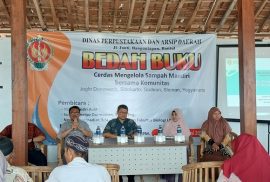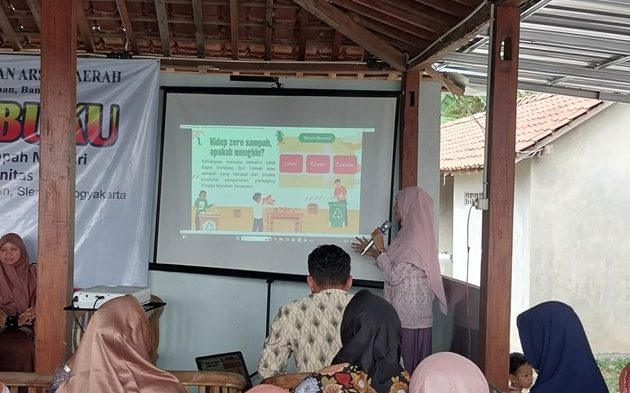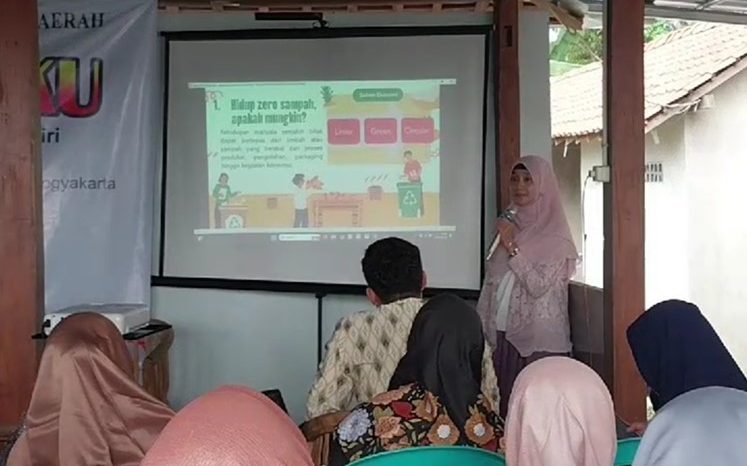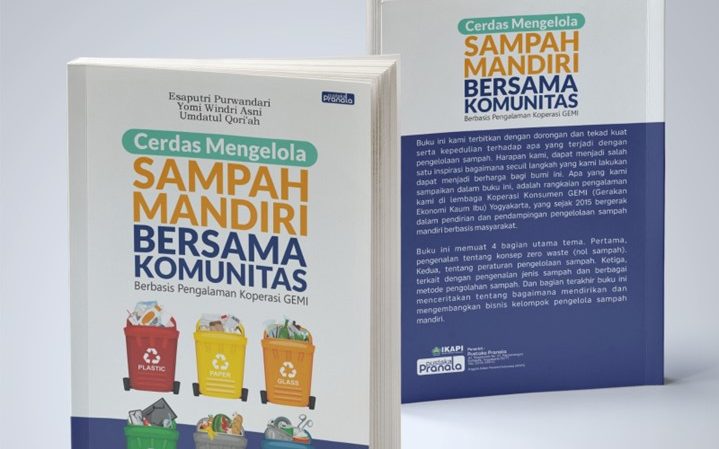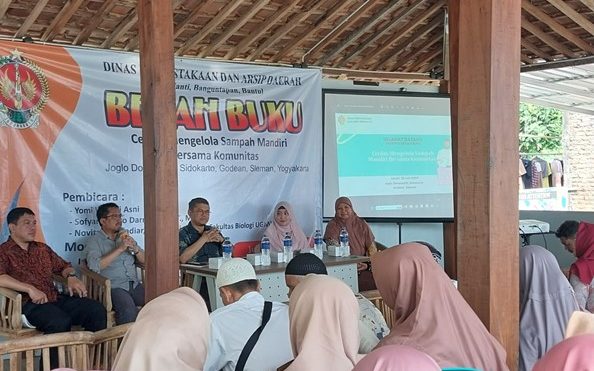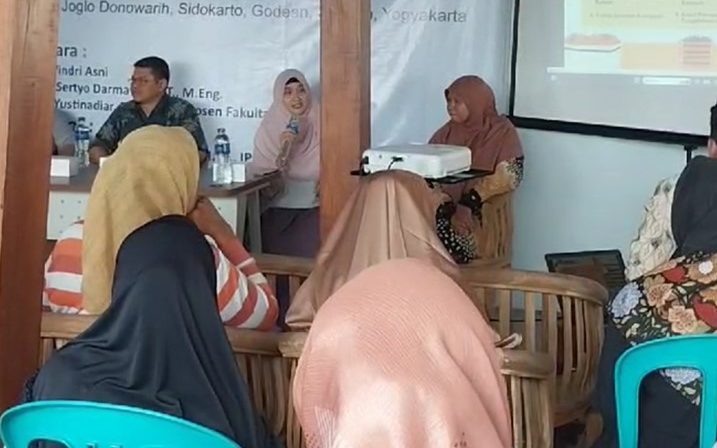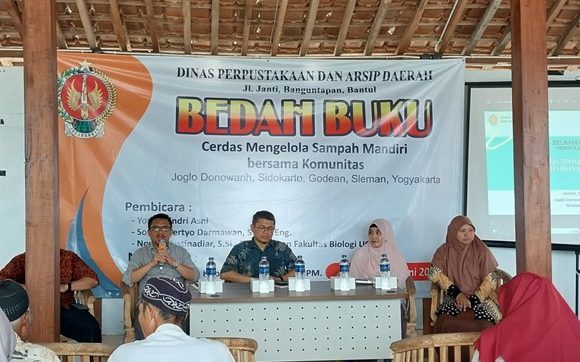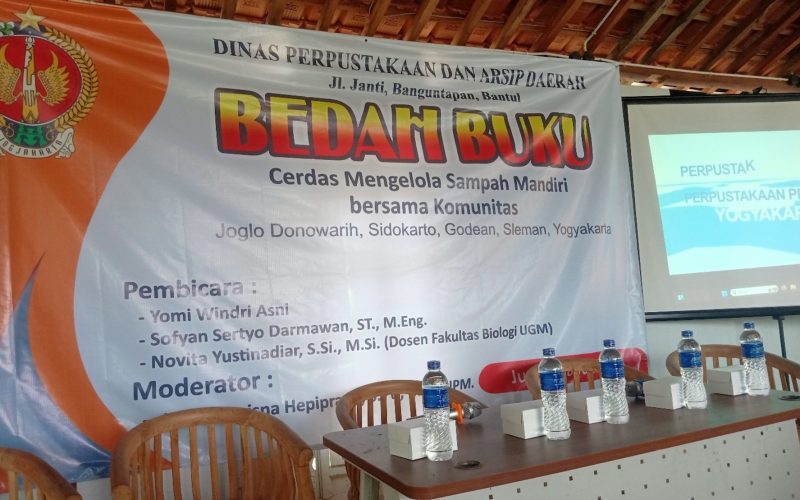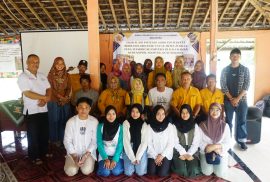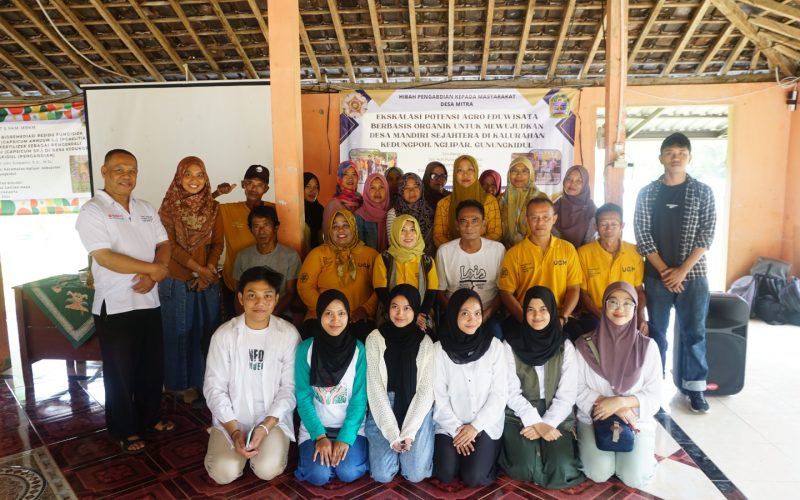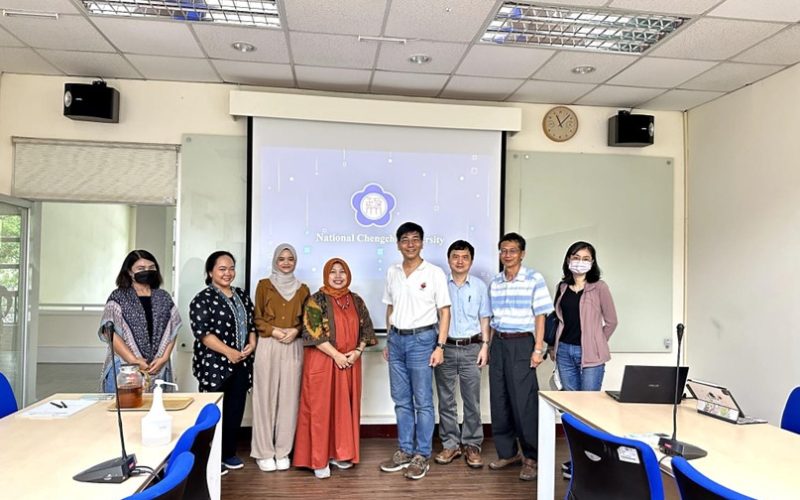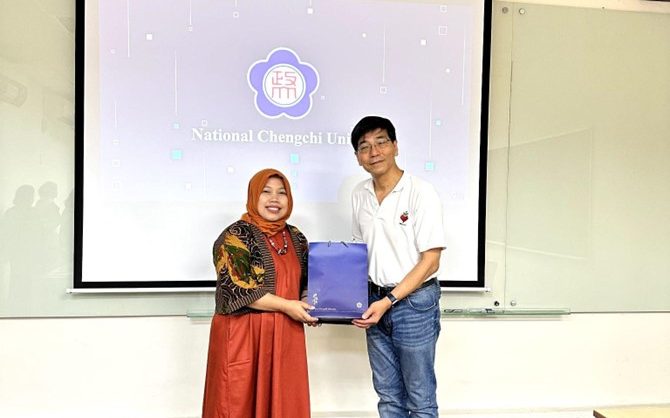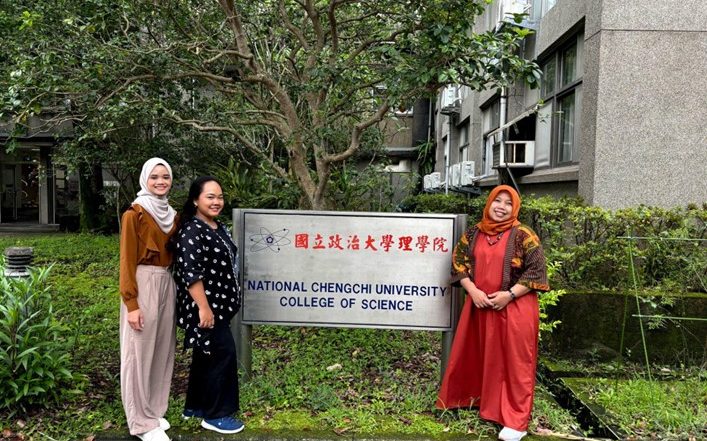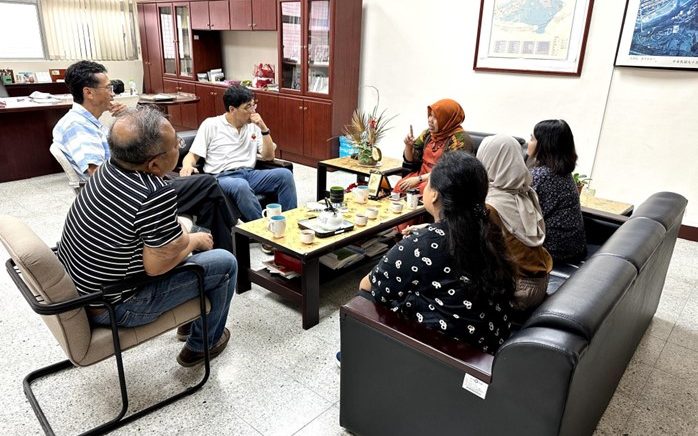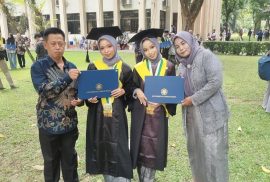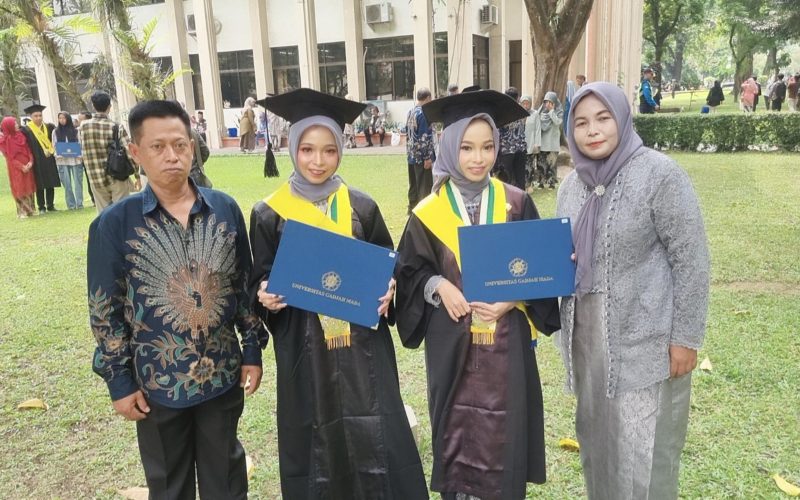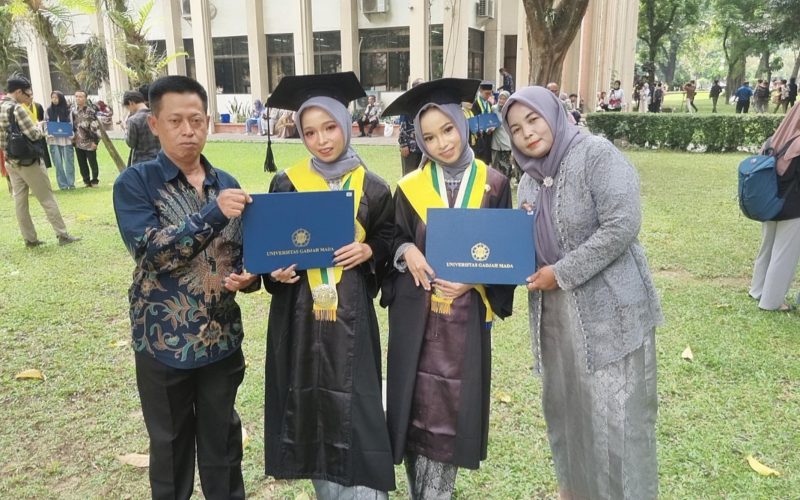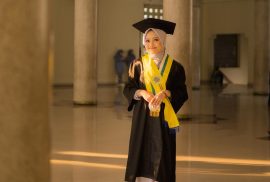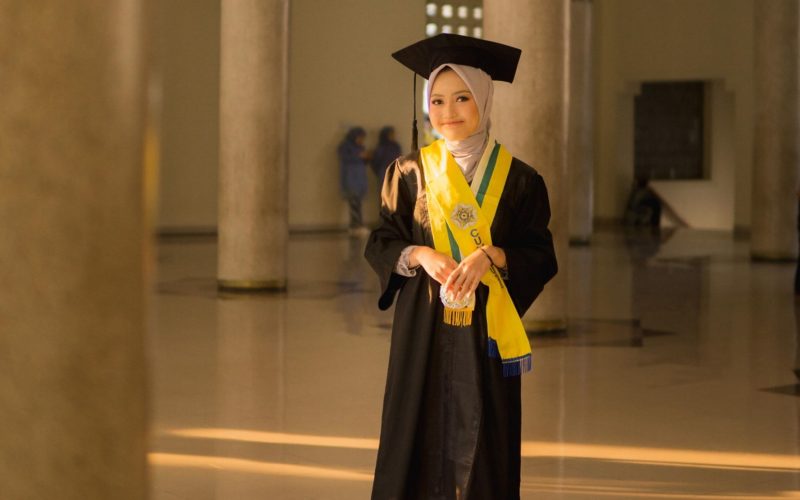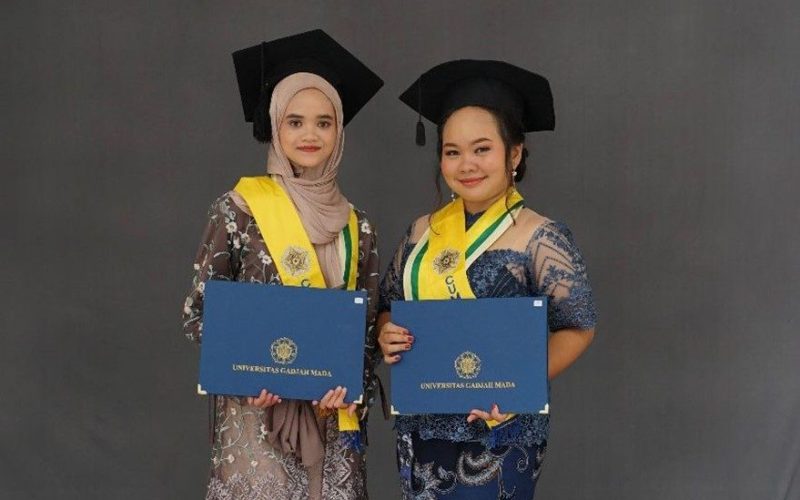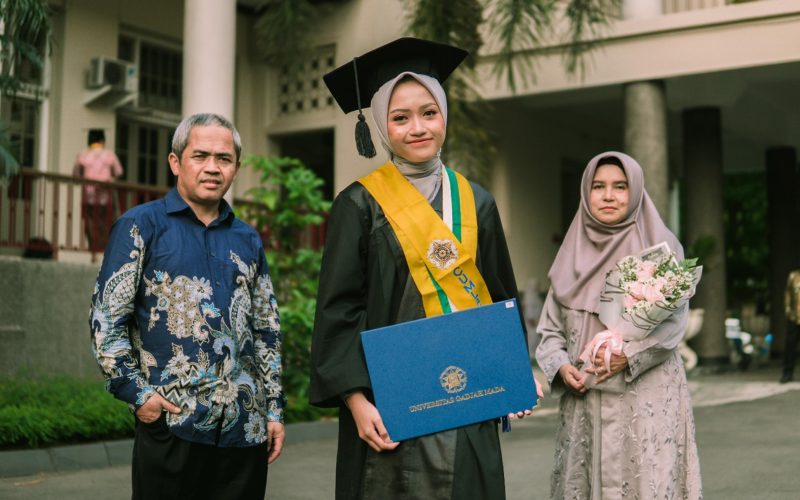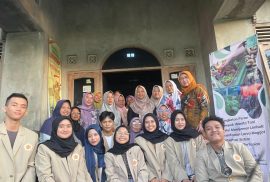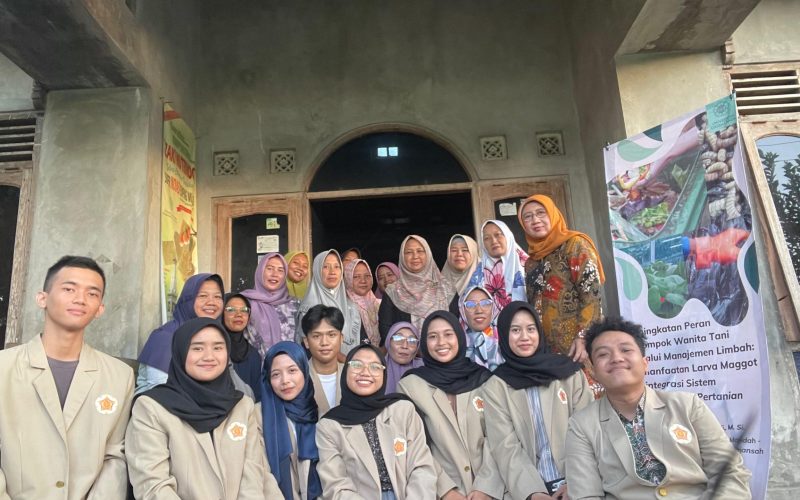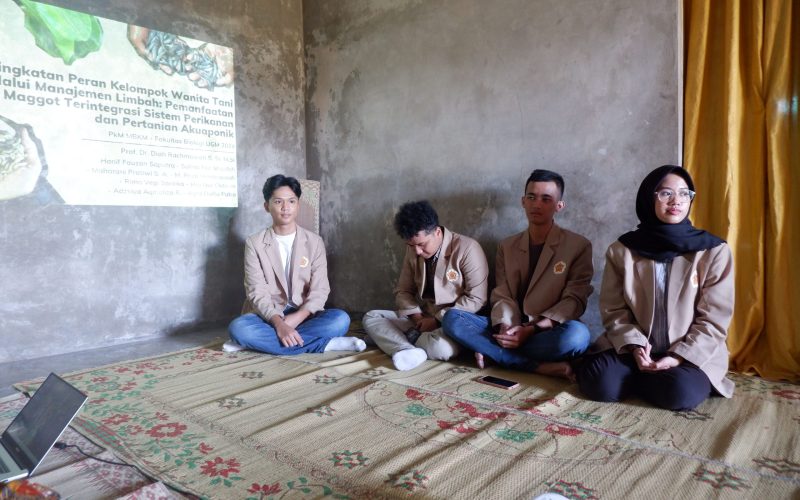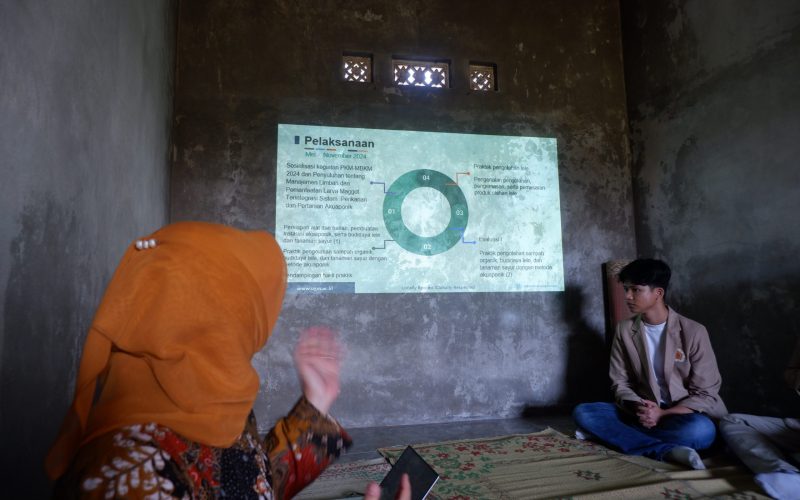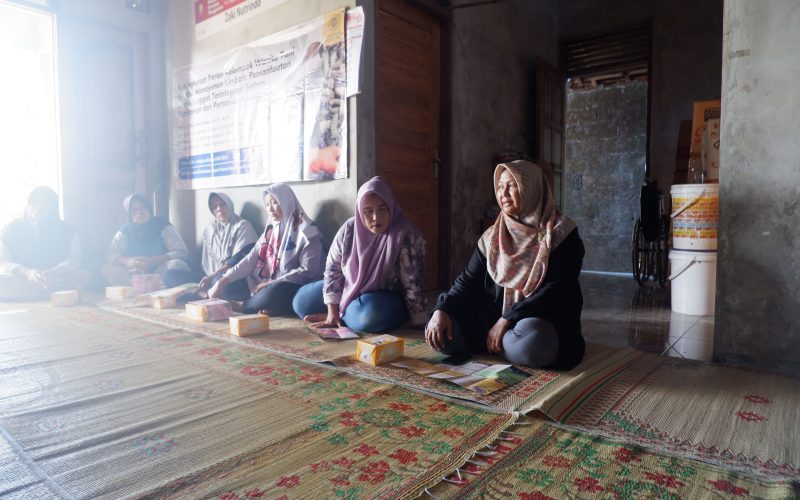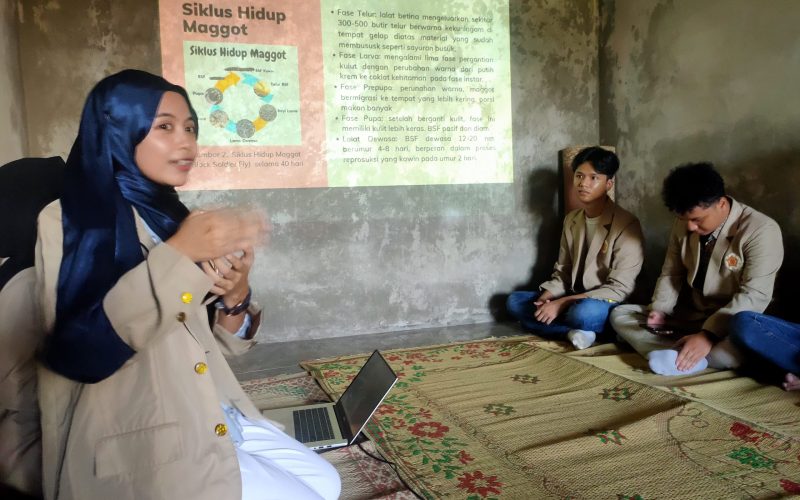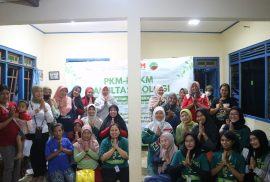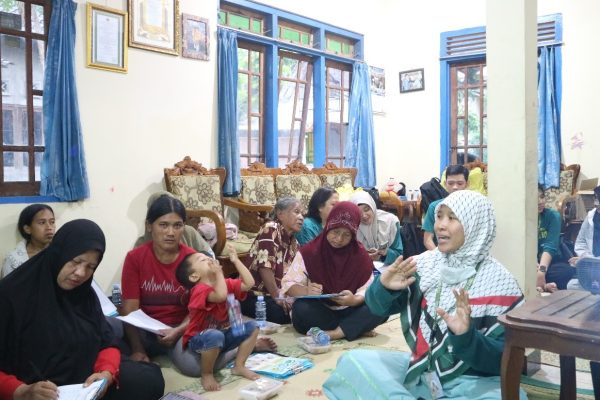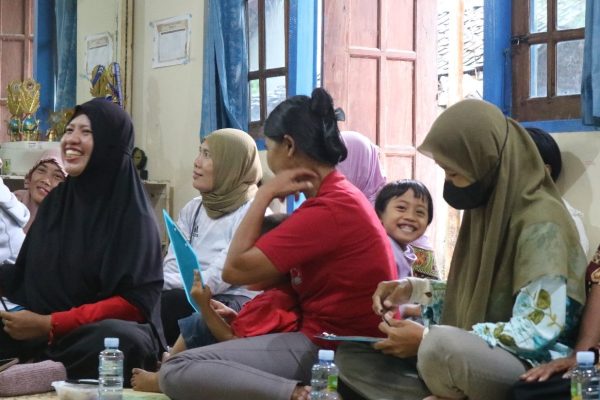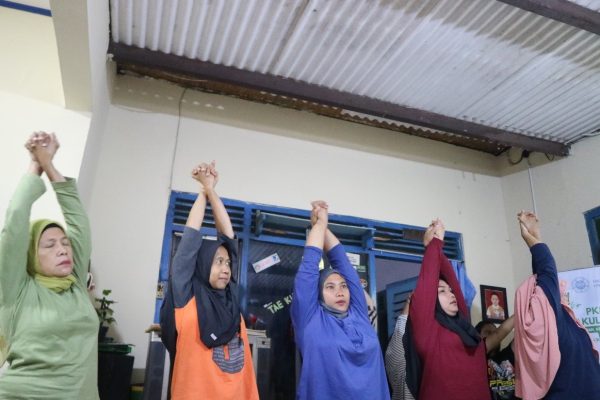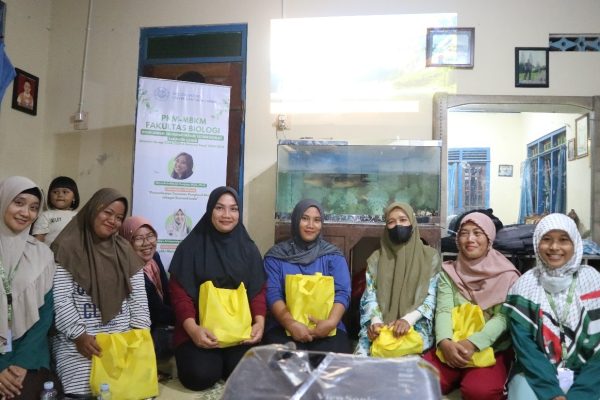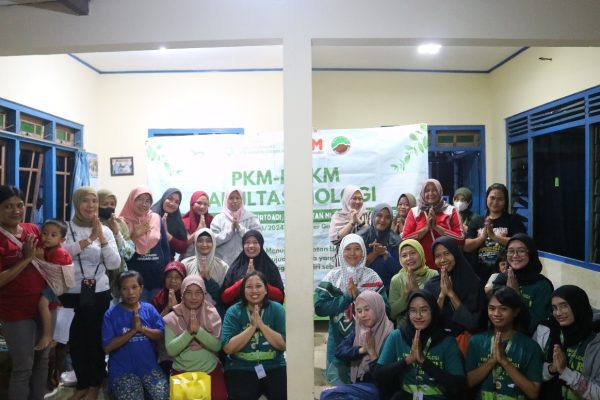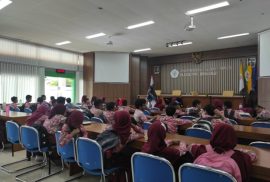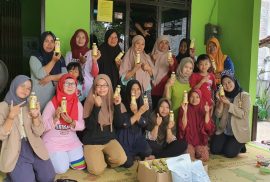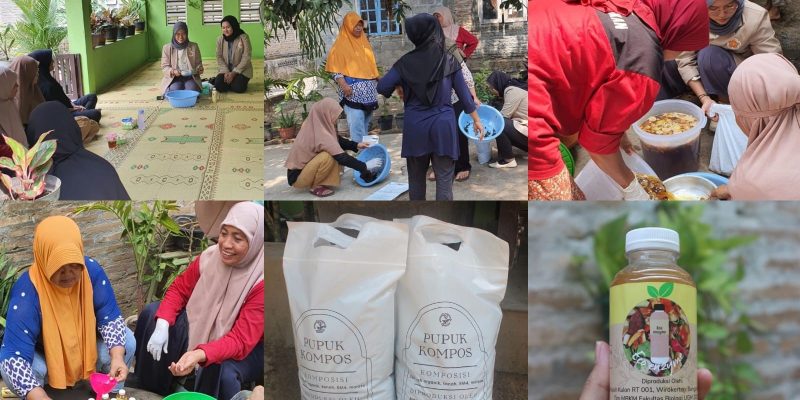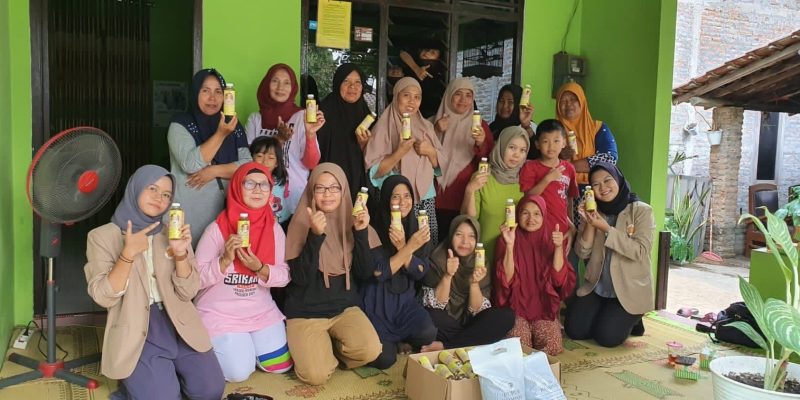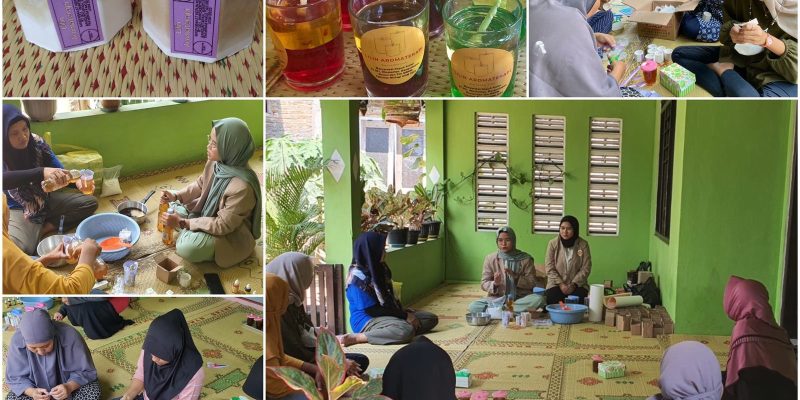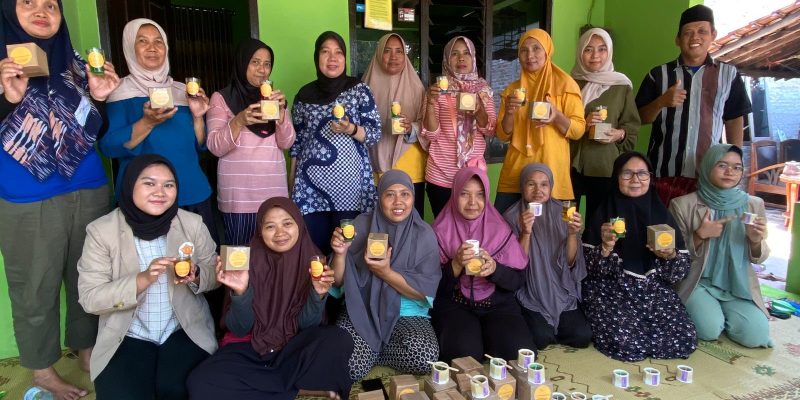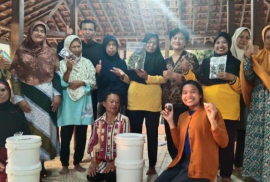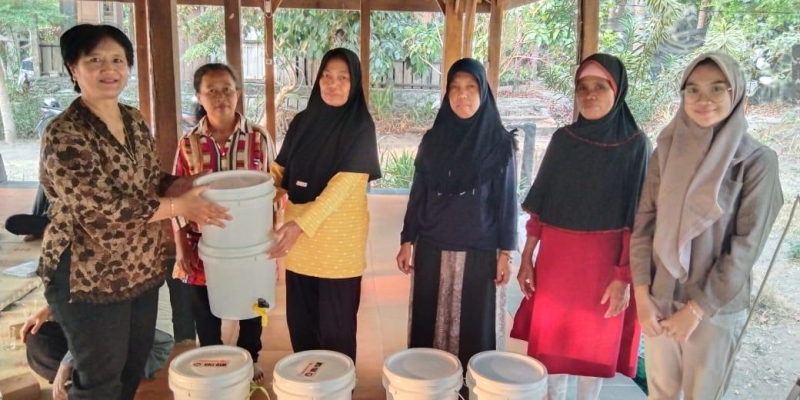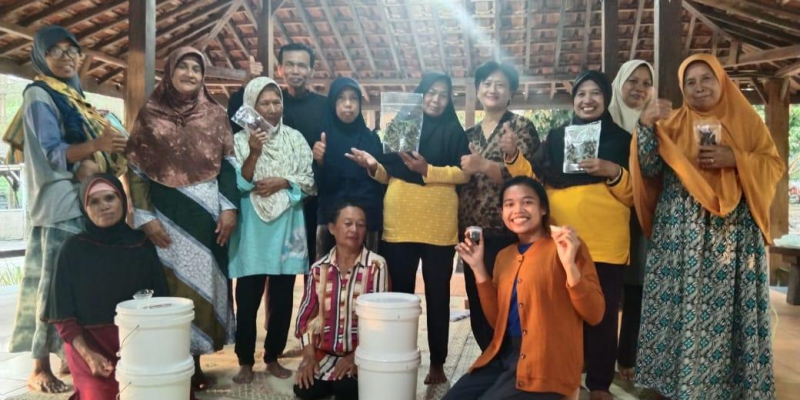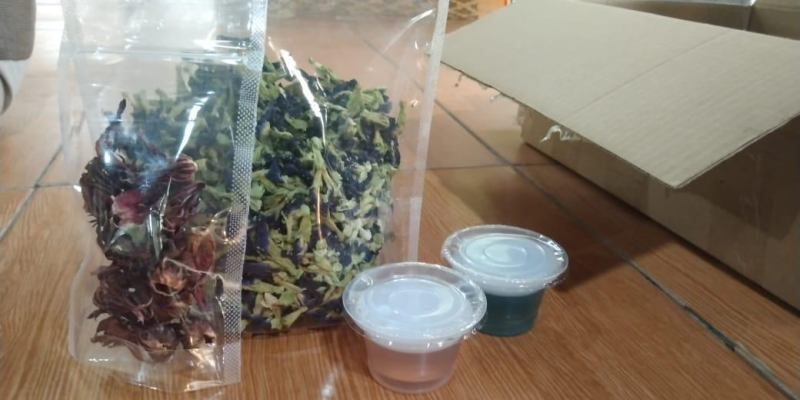SDG 5 : Gender Equality
In an effort to enhance the quality of human resources and strengthen the Tridharma of Universitas Gadjah Mada in 2024, one of the faculty members of the Faculty of Biology, Ganies Riza Aristya, S.Si., M.Sc., Ph.D., received funding to participate in a Professor Exchange Program between Universitas Gadjah Mada and the National Chengchi University (NCCU) College of Science, Taiwan. On this occasion, Dr. Ganies was accompanied by two Fast-track Master’s students, Lucia Arum Sekar Meysari, S.Si., and Azizah Tyas Nugrahanty, S.Si. This program is funded by the Directorate of Partnerships and Global Relations. The activity is supported by a proposal entitled “Increasing the Production of Polyhydroxybutyrate (PHB) as a Biodegradable Biopolymer Plastic through Recombinant Plasmid Transformation.”
The Joint Supervisor visit to NCCU Taiwan took place from May 27th to June 1st, 2024. This program is one of the collaborations between Universitas Gadjah Mada and National Chengchi University in the form of professor exchanges. The activity began with an introduction session by the dean of the College of Science (Professor Hsing Luh) followed by introductions and research topic presentations by the representatives from UGM’s Biology department, Dr. Ganies. The results of this visit included the establishment of short-term and long-term collaboration agreements, including the signing of a memorandum of agreement, mentoring, research development collaboration and publication, also the creation of an international community.
With this program, it is evident that the Faculty of Biology is committed to supporting efforts to strengthen Universitas Gadjah Mada’s ranking in the field of outstanding sciences related to UGM’s contributions to knowledge and humanity. This goal is related to SDG number 8 on education. By providing easier international access, this program can also expand Universitas Gadjah Mada’s international cooperation and future orientation. Our gratitude goes to Professor Hsing Luh, Professor Chih-Kai Yang, Professor Ming-Huan Chan, Professor Shau-Kwaun Chen, and all the staff of the College of Science NCCU, who have provided us with the opportunity to collaborate in the 2024 Joint Supervisor activity.
#SDGs
#JointSupervisor2024
#DirectorateOfPartnershipsAndGlobalRelations
#TahirFoundationUGM
#FakultasBiologiJointSupervisor
Hashtags: #SDG’s, #SDG’s 4, #SDG’s 5
Hastag: #SDG’s, #SDG’s 4, #SDG’s 5
Hashtags: #SDG’s, #SDG’s 4, #SDG’s 5
On Thursday, February 15, 2024, Class IV from SD Negeri Deresan Yogyakarta had a special opportunity to

explore the world of science through an inspiring visit to the Animal Structure and Development Laboratory of the Faculty of Biology at UGM. This visit aimed to provide a deeper understanding of the scientifi
c concepts they learn in class and to inspire their interest in science. A total of 58 fourth-grade students from SDN Deresan, accompanied by 2 homeroom teachers and 4 accompanying teachers, were welcomed at the Faculty of Biology UGM by the Faculty’s Guest Reception Team and greeted by the Head of the Animal Structure and Development Laboratory, Dr. Ardaning Nuruliani, M. Kes. The children were then divided according to their classes and invited to the Histology & Embryology Section and the Animal Anatomy Section of the Animal Structure and Development Laboratory. All the lecturers of the Animal Structure and Development Laboratory, along with Master’s and Bachelor’s students conducting research there, also welcomed the students.
 In the Histology & Embryology Section, students were introduced to microscopes and how to use them. They also observed the diffusion process and colorful microscopic preparations. Meanwhile, in the Animal Anatomy Section, students observed skeletal preparations, internal organs, and several anatomical specimens. The children showed remarkable enthusiasm and deep curiosity while learning in the laboratory. The visit also included a question-and-answer session, where the children were given the opportunity to ask questions about interesting science topics to the Master’s and Bachelor’s students conducting research in the laboratory. Intelligent and creative questions flowed, reflecting the growing interest in science among the young generation.
In the Histology & Embryology Section, students were introduced to microscopes and how to use them. They also observed the diffusion process and colorful microscopic preparations. Meanwhile, in the Animal Anatomy Section, students observed skeletal preparations, internal organs, and several anatomical specimens. The children showed remarkable enthusiasm and deep curiosity while learning in the laboratory. The visit also included a question-and-answer session, where the children were given the opportunity to ask questions about interesting science topics to the Master’s and Bachelor’s students conducting research in the laboratory. Intelligent and creative questions flowed, reflecting the growing interest in science among the young generation.
According to Mr. Paino, A. Ma (IVA Class Teacher) and Mr. Danang Nor Wicaksana, S.Pd. (IVB Class Teacher), this visit is part of the school’s efforts to provide diverse and in-depth learning experiences for their students. The students ended their visit with bright smiles on their faces and a deep sense of inspiration. “I want to be a scientist one day!” ; “I want to study here” and “I want to go to UGM” exclaimed the fourth graders with sparkling eyes. Such hopes may seem distant, but with visits like this, those possibilities feel much closer.
This activity of welcoming elementary school students is part of the Faculty of Biology’s commitment to supporting Sustainable Development Goals (SDGs) goal no. 4 Quality Education, goal no. 5 Gender Equality, and goal no. 17 Partnership for the Goals. Additionally, this initiative aligns with SDG goal no. 9 Industry, Innovation, and Infrastructure by fostering early interest in science and technology, and goal no. 10 Reduced Inequalities by providing equal learning opportunities regardless of background.
The team of Pengabdian Kepada Masyarakat – Merdeka Belajar Kampus Merdeka (PkM-MBKM) Faculty of Biology UGM 2023 that chaired by Rina Sri Kasiamdari, Ph.D. and involved two students, namely Galuh Kirana Mahadewi and Laila Uswatun Chasanah, carried out again a series of Community Service activities in Kepuh Kulon RT 001, Wirokerten, Banguntapan, Bantul. This activity is a continuity of the PkM-MBKM activities that have been carried out previously from February to June 2023.
The first activity of this PkM MBKM phase II was held on Sunday, October 8th 2023 from 09.00 to 11.00 WIB at the house of the neighborhood head of Kepuh Kulon RT 001, Mr. Zamzuri, and attended by 18 people of Kepuh Kulon RT 001. The activity on that day was packaging the compost and eco enzymes that had been made previously. First of all, Galuh and Laila gave a short explanation and demonstration about how to harvest and package the compost and eco enzyme. The compost was harvested by dried it for a while. After that, the compost could be packaged in a customized plastic ziplock. Unlike the compost, eco enzymes must be filtered between the fruits that are used and the water and then packaged in 250 mL bottles as much as 60 bottles. The compost that have been made is used for plant fertilization, while the eco enzyme is used for washing dishes, cleaning floors, repelling pests, cleaning vegetables and fruit from pests, and cleaning glass or glass surfaces. The compost and eco enzymes that are already packed and labeled are given to the Head of Wirokerten village and the Head of Hamlet. Hopefully, the skills of the women residents of Kepuh Kulon RT 001 in making compost and eco enzymes can become a reference in managing daily household waste, so that they can reduce the accumulation of waste and can make household waste more useful.
The second activity was about utilising used cooking oil (UCO) that become household waste into aromatherapy candles. It was held on Sunday, October 29th 2023 from 09.00 to 12.30 WIB at the house of the neighborhood head of RT 001 Kepuh Kulon, Mr. Zamzuri, and attended by 18 people of Kepuh Kulon RT 001. In this activity, the used cooking oil was made into solid aromatherapy candles and liquid aromatherapy candles. Tools and materials that used for making solid aromatherapy candles were used candle wick, wood holder, tea filter, plastic basin, pan, measuring cup, stove, cement pot, saucepan, cutting board, knife, spoon, used cooking oil, stearic acid, crayon, and essential oil, whereas the tools and materials that used for making liquid aromatherapy candles were glass cup, tissue paper, the cover of pudding cup, five different food colouring, water, used cooking oil, and essential oil. During the practice of making aromatherapy candles, we produced 100 solid aromatherapy candles and 25 liquid aromatherapy candles. All of them were distributed and could be used by the residents of Kepuh Kulon RT 001. Hopefully, the utilisation of UCO into aromatherapy candle could be one of the solution for reducing oil waste that can cause an environmental pollution and also could be a micro/small/medium enterprises (MSMEs) business idea for Kepuh Kulon RT 001 residents. The aromatherapy candles also distributed to the Head of the Hamlet, and the Head of Wirokerten Village. It is hoped that this PkM-MBKM program can provide new knowledge for Kepuh Kulon RT 001 residents in processing and utilizing household waste into more useful products.

